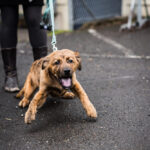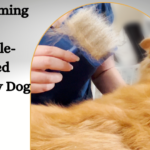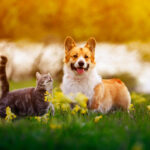
[ad_1]
Women signify 50% of the world’s inhabitants, and subsequently half of its potential. But do you know that, at current, lower than 30% of researchers worldwide are girls? According to latest knowledge supplied by the UN: “Globally, feminine college students’ enrolment is especially low in pc know-how (3%), pure science, arithmetic and statistics (5%) and in engineering, manufacturing and development (8%).”
Even at the moment, entrenched biases and gender stereotypes are steering girls and ladies away from scientific fields. But given the present challenges of local weather change, nature loss and COVID-19, it’s extra essential than ever to harness all the expertise and innovation we’ve at our disposal. To accomplish that, we have to promote the participation of all sections of society.
Mr. António Guterres, the UN Secretary-General, acknowledged that attaining gender equality and empowering girls and ladies is the unfinished enterprise of our time, and the best human rights problem in our world. Here at BirdLife, we try to steer by instance and encourage the subsequent era of feminine conservationists. From Patricia Zurita, our CEO and the primary girl from a growing nation to lead a world conservation organisation, to superb researchers measuring albatross eggs on distant islands or undertaking managers doing neighborhood work in South America for greater than 10 years, the BirdLife partnership is stuffed with superb girls of all ages and phases of their profession.
Read on to find a few of the largest challenges they confronted, and their recommendation to different girls that need to develop a profession in science:
Itala Yepez
Head of Conservation at BirdLife International – Americas

What challenges have you ever confronted working as a feminine researcher?
“I’m initially from Ecuador and, for the final 15 years, I’ve been working in conservation at a world stage. Between 2012 and 2018 I moved to Mexico and labored in an American conservation group referred to as Rare. Without a doubt, that was one of the vital difficult moments in my profession.
At that point I used to be divorced, had two younger youngsters and the brand new place required me to maneuver to Mexico. Accepting a administration job with an excessive amount of obligations and fixed journey to the U.S. and Latin America, and attempting to stability it with household time was difficult, however it helped me construct my profession and I’m captivated with what I do, so I took the job and discovered rather a lot alongside the way in which.”
Do you’ve gotten any recommendation for girls pursuing a profession in science?
“I might inform them to pursue their desires, face the obstacles that society imposes and be one of the best model of themselves daily. The world is dealing with more and more complicated international challenges and we can’t afford to go with out half of the inhabitants when fixing them. The absence of girls in science means giving up all of the information, expertise and potential that this group can generate.”
Sanja Duranović
PhD researcher learning endemic fish species in Livanjsko polje – undertaking granted by CEPF through BirdLife

What challenges have you ever confronted working as a feminine researcher?
“Given that I’m a younger scientist at first of my profession, I feel probably the most difficult second to date has been for me to have the ability to do what I really like in my nation with out leaving it. Bosnia and Herzegovina, though a small nation, could be fairly difficult in relation to constructing a analysis profession. It may be very tough to be a scientist right here as a result of the nation invests little in scientific progress. This could be very demotivating for any younger scientist who comes out of her research desirous to contribute to the world, and should make them really feel that the one choice they’ve is to go and construct a profession overseas.
I used to be persistent and, fortunately, in a position to get a job right here and do what I really like. My dream is to contribute to the development of science in our nation, in order that as many younger scientists as potential keep right here and assist change this little world of ours for the higher. That shall be my subsequent problem.”
Do you’ve gotten any recommendation for girls pursuing a profession in science?
“Don’t get demotivated – issues which might be value it take their time. Through my research, I’ve discovered that it’s improper to look at an ecosystem from just one viewpoint. To get an entire and correct image of a system, we should have a look at all the pieces, from all angles. That is why it will be important that women and girls get equal rights, entry and participation – not solely in science and know-how, but in addition in all spheres of life – as a result of solely then can we give an entire and clear image of any downside and contribute to the progress of society, science, and finally humanity. We girls should not on the lookout for superiority over males; we’re on the lookout for equality and for our phrases, analysis and options to be heard in addition to theirs.”
Ana Veiga
Coordinator of BirdLife’s Cabo Verde seabird undertaking

What challenges have you ever confronted working as a feminine researcher?
“I’m very captivated with nature, and since I used to be a baby I needed to be a scientist! After a MSc course in Conservation and Biology, I returned to my residence nation, Cabo Verde, and labored for six years on the National Directorate of Environment.
The largest problem I confronted was once I determined to go away my job on the Government, as I didn’t need to work simply in an workplace. While I used to be very decided, I didn’t have help from a few of my kinfolk and associates, as they although a authorities work is synonymous with monetary stability and that my profession may very well be over by leaving it. I simply needed to comply with my desires and implement my very own undertaking concepts. It was not straightforward, however I can say that it was value it. I’ve developed partnerships with different NGOs, expanded my contacts’ community and I’m contributing to enhancing information of the biodiversity of Santiago island, and the sustainable improvement of its communities.”
Do you’ve gotten any recommendation for girls pursuing a profession in science?
“Women and males ought to have the identical entry and participation in science and know-how as in another area. However, alternatives don’t all the time come up for women and girls.
I might say battle for the event of science and the dissemination of the information, and help extra girls to allow them to have entry and participation in science and know-how. By doing this, you’ll contribute to sustainable improvement worldwide. Discrimination in opposition to girls could be an impediment, however it will be important not to surrender. Women could make a useful contribution to the event of humanity.”
Asunción Ruiz
CEO of website positioning BirdLife (Spanish Partner)

What challenges have you ever confronted working as a feminine researcher?
“In my case, I might not converse of probably the most difficult second of my profession, however of modifications I made in my dedication to society. These started when, throughout my profession in Biology, I made a decision to alter out of the white coat of a geneticist and into the muddy boots of an environmentalist. Throughout my skilled profession, these very important twists and turns have adopted one after the opposite and the trail has lastly led me to tackle the very important dedication of working in an NGO to battle for true equality.
As the Executive Director of website positioning BirdLife, I’m very proud that we’re one of many largest Spanish environmental NGOs by way of technical and monetary scope, permitting us to develop current and future methods for the conservation of nature.”
Do you’ve gotten any recommendation for girls pursuing a profession in science?
“In ornithological phrases, I might inform them that nothing and nobody ought to ever reduce their wings and that, in occasions of problem, they need to be part of forces and flock collectively. All of us are wanted for science to fly excessive and dwell as much as its potential. It is totally inconceivable that within the twenty first century society we predict that we will progress with out women and girls getting access to equal participation and progress. A society can solely advance if all folks have the identical alternatives.”
Ngone Diop
Coastal Seabirds Project Officer, BirdLife Africa

What challenges have you ever confronted working as a feminine researcher?
“Being a feminine birder requires a powerful character and exhausting work, to earn belief. I studied biology at Cheikh Anta Diop University in Dakar, on the time I had no concept that I’ll find yourself doing ornithological analysis and being captivated with birds. On my first fieldwork day, as I used to be endeavor my Masters diploma, I couldn’t establish any chicken species, however was impressed by the quantity and variety of the birds.
This inspired me to affix a nationwide NGO engaged on chicken and biodiversity conservation (Nature Communauté Développement) the place I turned the Important Bird & Biodiversity Areas focus, coordinating month-to-month waterbird monitoring in Dakar and surrounding areas, along with collaborating in a number of biodiversity conservation actions.”
Patricia Zurita
CEO of BirdLife International

Do you’ve gotten any recommendation for girls pursuing a profession in science?
“For a lady, particularly from a growing nation, attending to the place I’m now was tough, however not unattainable. It requires a variety of endurance, and also you do should work tougher. Being a working mom is an additional problem. You must ensure you construct workforce beneath you that you could depend on, and still have a supportive workforce of family members at residence. It could be a juggling recreation, however when you get pleasure from it, it’s positively value it.”
Source www.birdlife.org






